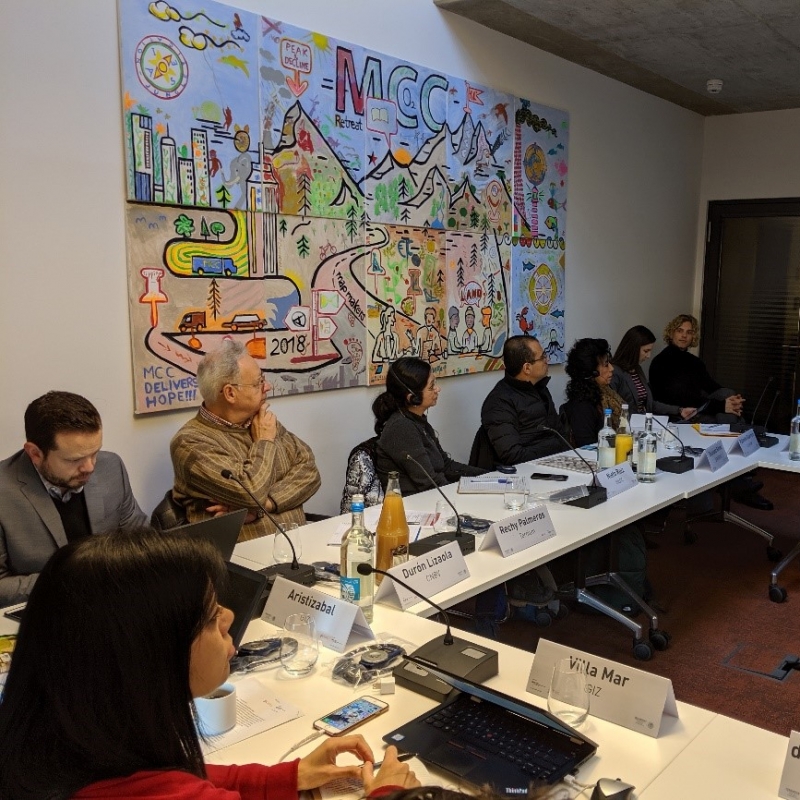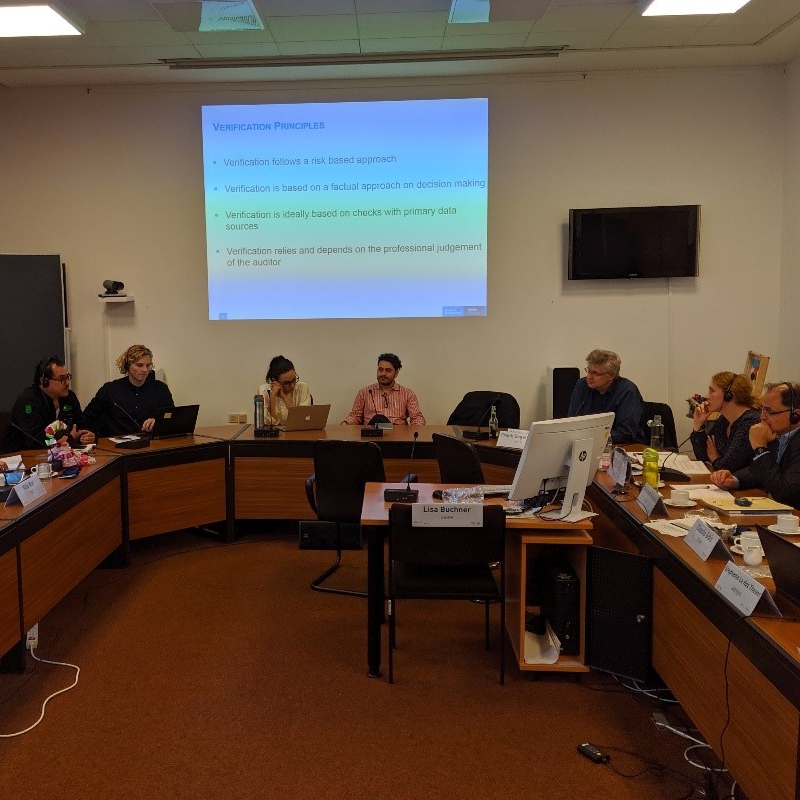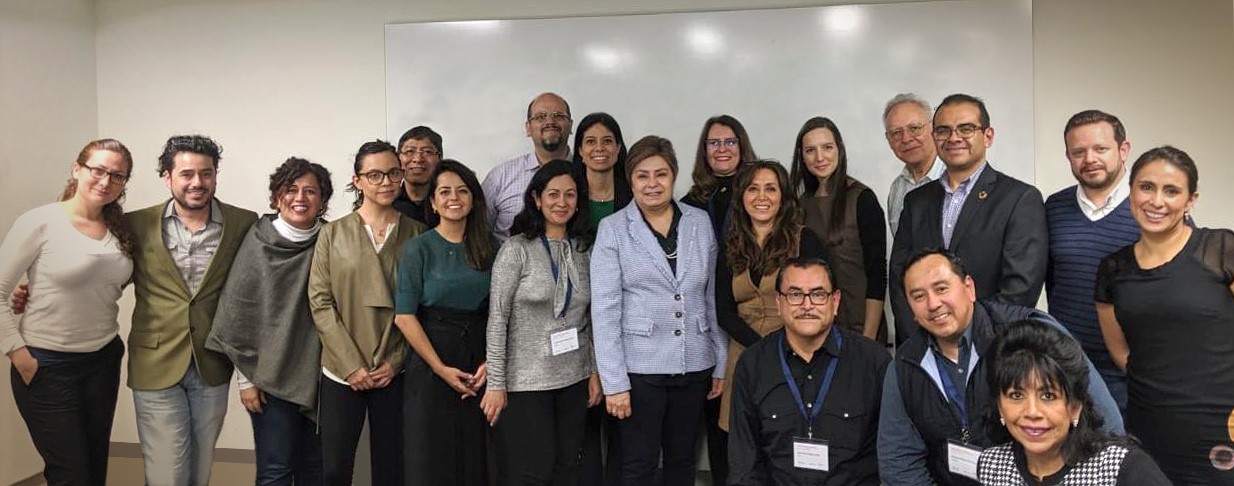The project “Preparation of an Emissions Trading System in Mexico” (ETS), implemented by the German Cooperation for Sustainable Development (GIZ), carried out a study trip for representatives of different sectors (public, private and academia) to Germany. The objective of the trip was to bring Mexican participants closer to the experience of implementing the EU ETS and to foster interaction between Mexican actors and their European counterparts. The trip covered some of the central design aspects of the Emissions Trading System (ETS) in a didactic way and compared them with some of the key elements of the European ETS.
The trip took place in the week of October 26 to November 1, 2019, in the cities of Berlin and Bonn, with an opening by the Mexican Embassy in Germany and the Ministry of Environment and Natural Resources (SEMARNAT). During this period, participants met with representatives of the United Nations Framework Convention on Climate Change (UNFCCC), the German Federal Ministry of Environment, Nature Conservation and Nuclear Safety (BMU), GIZ, the Mercator Institute (MCC), of the German Authority for Trade in Emission Rights (DEHSt) and of facilities regulated by the ETS of the European Union, such as Currenta and RWE, who shared their strategies and knowledge to face the challenges and areas of opportunity that entails the fulfillment of the obligations under this market instrument. In this way, the members of the travel group shared concerns and visions about the possible impact of an ETS in Mexico.
The German authorities shared with transparency the mistakes of the past, how they were overcome and some advice to the nascent Mexican market so that it can make the leap and avoid going through the same situations. They also commented that the ETS in Germany has fulfilled its objectives, being proof of the effectiveness of this mechanism to encourage mitigation by the private sector in that country.
In the MCC, different research opportunities associated with the ETS were presented; for example, to analyze the distributive effects of the mechanism, its acceptability and the way of communicating the impacts derived from its implementation.
A common message in all visits was the optimism for the effectiveness of the market mechanism and the possibility of using it to reduce emissions in a real way, with the involvement of various sectors of society.
In addition to the presentations of the experts, the trip was enriched by the interaction between the Mexican participants themselves, who were able to get to know directly the experience and vision of private sector companies, the environmental authority, regulators, verifiers, and researchers in the country.
With this edition of the study trip, SiCEM provides more tools to the main actors of the Mexican ETS and seeks to integrate them within the various participant institutions. SiCEM will continue to reinforce these efforts and transparently share the lessons learned in the implementation of the EU ETS more than a decade after its entry into force.
For the closing of this note, we would like to share the message that the Executive Secretary of the UNFCCC, Patricia Espinosa, gave us: if we continue to act under the same premises, we will only have problems and we will have to bear the costs. On the other hand, if we promote sustainable development, we will only find opportunities. It is in our hands to use the knowledge, skills, and technologies available to start this path. Making mistakes allows us to learn from them and move on. We can retake the example of the companies that have taken up the challenge and have found the opportunities. The road is difficult, but not doing anything will be even more difficult.
The trip was co-organized with adelphi and FutureCamp.
For more information on this topic, please contact us at:



















